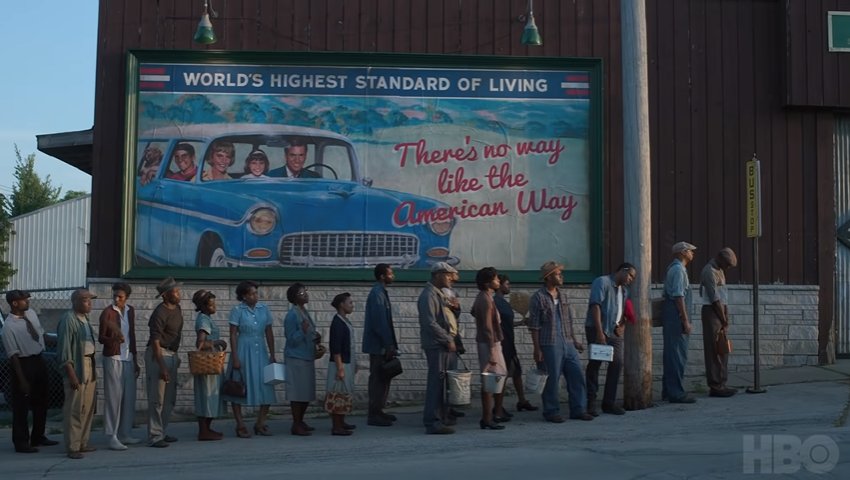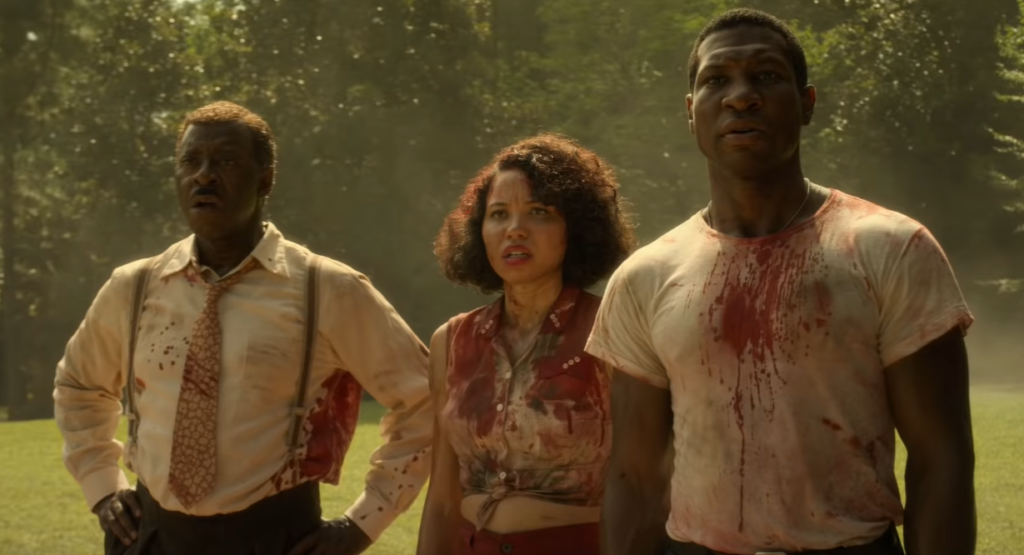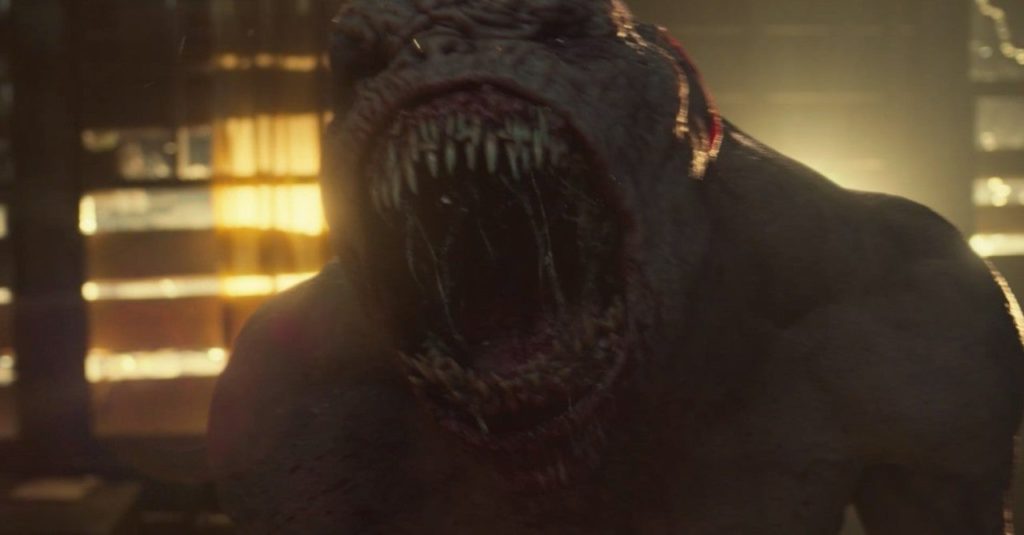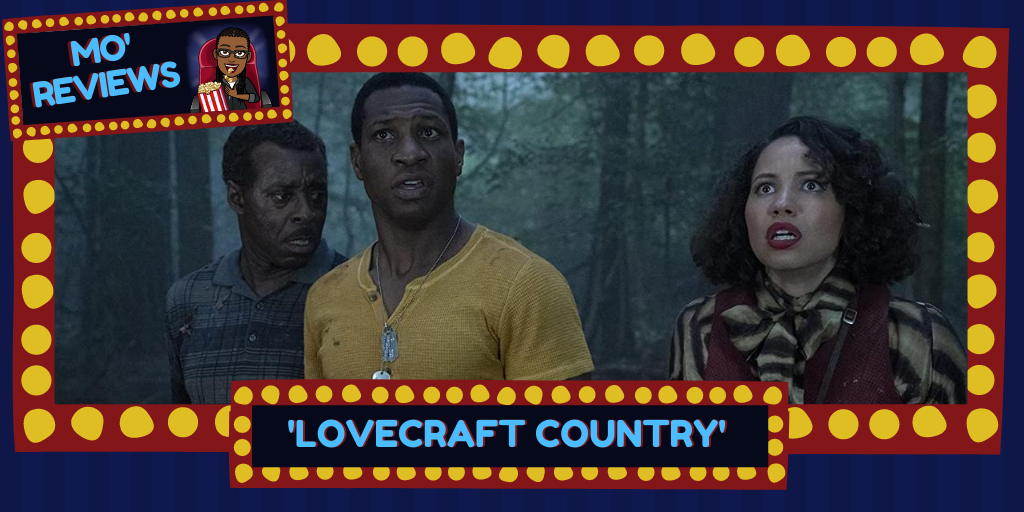Creators: Misha Green, Jordan Peele
Directors: Daniel Sackheim, Yann Demange, Cheryl Dunye (first feature film written and directed by an out Black lesbian about Black lesbian life), Victoria Mahoney (first Black woman to direct a Star Wars film), David Petrarca
Writers: Misha Green, Jonathan I. Kidd, Sonya Winston, Shannon Houston, Kevin Lau, Wes Taylor, Jordan Peele, Matt Ruff (Based on the novel by)
Starring: Jonathan Majors, Jurnee Smollett, Courtney B. Vance, Michael Kenneth Williams, Aunjanue Ellis, Wunmi Mosaku, Abbey Lee, Jada Harris, Chase Brown, Marcus A. Griffin Jr., Mac Brandt, Alex Collins, Joaquina Kalukango, Jamie Chung, Jamie Neumann, Tony Goldwyn
Monique’s review:
Spoilers below
Lovecraft Country, the sophomore project from Underground co-creator Misha Green, is a tour-de-force that doesn’t show all of its cards at once. Instead, like a slow-build science-fiction novel (perhaps even one by H.P. Lovecraft himself), Lovecraft Country settles you into its universe before shocking you with its hidden monsters and horrors.
Using Lovecraft as a jumping-off point is ripe with symbolism. Experts laud the author as one of the greatest American writers of the 20th century. Yet, he was a staunch racist and White supremacist, with much of his horror fueled by xenophobia. Indeed, his works exhibit the misuse of creativity that goes into America’s racist agenda. I mean, you have to have a wild imagination to believe that Black people are the devil incarnate intent on destroying the “sanctity” of White American life.
The real fear that Lovecraft must have had on some unconscious level is the same fear white America as a construct has. It’s not the fear of Black and Brown people ruining White American lives, despite how many times that line of thinking gets used in Fox News propaganda. The real worry is that the totality of misdeeds and real-life horrors white American society has enacted upon its non-White citizens will come back to haunt them.
The horror Lovecraft and others have tried to run from, the awe that infiltrates their imaginations, facing the repercussions of enacting hundreds of years of abuse. It’s a fear that has strains in several subgenres of science-fiction, such as alien invasion plots and zombie apocalypses–the fear of karma coming back to bite.

The horrors of racism are why Lovecraft Country decides to make most of its pilot episode about real-world horrors instead of the absurd ones Lovecraft dreamed up. However, what we see in Lovecraft Country–the threat of sundown towns for Black residents and travelers, economic and ecological racism, advertisements featuring mammies and butlers, terrorists living as sheriffs and police officers–is what Lovecraft considered a decent American society. The absurd reality Lovecraft lived in fueled his racism. His racist imagination fueled his audience, creating an echo chamber that regards the Other as a threat to humanity, especially when they try to defend themselves from harm. America is, indeed, Lovecraft Country.
While Lovecraft’s books provide the series with an allegory for American apartheid in the ’60s, the series smartly uses another body of work to serve as the viewer’s trusty guide–the Green Book.
The Green Book, otherwise known by its official title The Negro Motorist Green Book, was published by Victor Hugo Green from the ’30s through the ’60s. The book is what Uncle George Freeman (Vance) is working on and what he uses to justify him going with his nephew, Atticus (Majors), and Atticus’ friend Letitia (Smollet) on a search for Atticus’ missing father (Williams).
In real life, as in the show, the book was a guide for Black families traveling throughout the country, providing them with information on safe places to rest, eat and relax without the fear of being harassed by white racists. In Lovecraft Country, the book takes on an additional task of being a map both we and the characters can follow. They fight their way through white supremacists and monsters to find out what secrets Montrose discovered about his and Atticus’ family line.

There is so much to discuss regarding this intense debut. But I think it’s safe to say that this show is difficult to describe without saying, “You have to see it for yourself to understand its magic.” Like Watchmen, Lovecraft Country tackles a multitude of issues facing Black and White Americans with deft precision. Not only does it focus on how Jim Crow laws and generalized racism affected Black America, but it also gives subtle commentary on how those same laws and ways of life degrade White America as well.
For instance, there’s a scene where a teenager is making motions and sounds like a monkey to make fun of Atticus for being Black. But between the two, who looks and sounds the most monstrous? Similarly, later in the episode, our core trio gets attacked by a racist sheriff and his deputies and led to a forest, presumably to be killed. But the ones who end up getting done in aren’t the Black leads; it’s the law enforcement. Most of them get eaten by monsters lying in wait in the forest, while two others turn into the monsters themselves after getting bitten.
The statement these two scenes are making should be obvious–those who do grotesque acts are turning into the very monsters they claim they’re not. In other words, the ways of life that fuel white supremacy in America create monsters out of the very people the system means to uplift. To break the cycle of monsters, you have to break the system. But, you have to know you’re affected by the system in the first place to break it, and like the teenager, the sheriff, and deputies, a lot of White Americans still don’t know the system they uphold is the system that’s doing them in.

I’m excited to know what other mysteries and commentary Lovecraft Country has in store for us. What I love most about diverse content isn’t just the diversity; it’s the ability for that content to make us think and entertain us at the same time. Green had proven she has the talent to do this, even with the most horrific of subject matter, when she gave us Underground, a drama set in the time of American slavery.
With a stellar cast and exceptional writing, Lovecraft Country intends to provide us layer after layer of thoughts and images for us to chew on. It will vivisect the white supremacist ideals America runs on–the models that fueled Lovecraft’s work–while birthing a new mode of thinking about Black America in the process. Lovecraft Country is an ambitious work, but it seems fully prepared to prove its case for reimagining Black American life in science-fiction and beyond.
